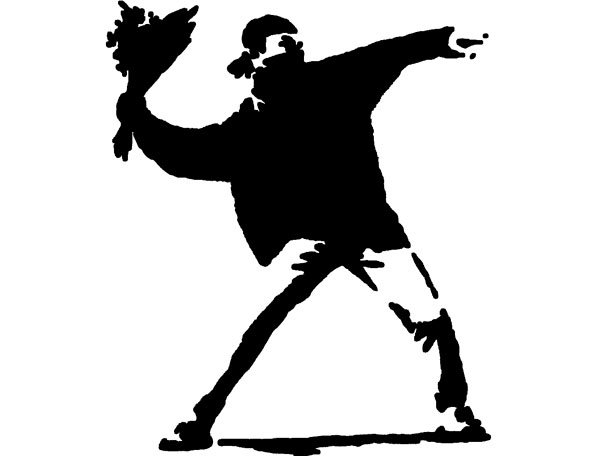Beautiful Chaos

My relationship with conflict has always been, for lack of a better word, conflicted. Like most of us, I think, I want to change the world. I recognize that to do that, conflict is inevitable. Indeed, I think we must seek out conflict with the ideas, structures, and preconceptions that walk all over so many innocent people.
Conflict is good. Critical thinking is conflict. Engaging in politics is conflict. Changing our lives is conflict. Thought of like this, conflict takes in much that is beautiful and meaningful in human life – the ability to make that life better for others and for those who will come after us.
The question, though, is what motivation these struggles are built on. So many of those I have seen working for social change stand their work on legs of anger and outrage. This makes me deeply uncomfortable at times. I’m uncomfortable with the looks in the eyes of true believers, but more often I’ve been uncomfortable with the absence of the same driving anger in my own.
It’s quite bit self-indulgent, really. Poor comfortable white man, agonizing over his lack of agony. Still, it has brought to my mind something I think is worth considering: that maybe, just maybe, it is possible to build a passion for conflict on a foundation of joy. Maybe, just maybe, that might help create the kind of constructive conflict that we should look for.
There is an obvious instrumental argument to be made here, of course: that coming at our work from a more positive perspective makes us less likely to burn out. That social movements built on working for are inherently more sustainable than those that work purely against. This is all certainly true, but there is more to this story.
One of the constants for most of the readers (and writers) of this magazine is the depth of our privilege. As an educated, white, middle class, male Canadian, there are an incredible number of doors opened wide to me that are slammed shut (or nearly so) for so many other people. Understanding this is the first step towards being able to use this privileged position towards some sort of greater good.
What I would contend here, though, is that one aspect of our privilege that we sometimes waste is our opportunity not to get upset. The fact is that many of us have not, and will never, experience the degree of repression and fear that many people elsewhere live with every day. However empathetic we may be as people, we will never be able to quite duplicate it. Nor, I think, should we always try to.
The question is this: how can we best serve those who don’t have the same privilege we do? Is it by absorbing their perspective and giving it our voice? Often, yes. This can certainly be a very powerful thing. But not always. Perhaps we can also help by taking what we’ve been given – a distance from the issue- and use it.
What will be the result? Conflict. A conflict that will as often be with the repressed as with their repressors. By focusing less on the internal conflict that injustice brings up in us, and more on providing a critical perspective to those causes we care about, we can help build an honest and intellectually open movement.
I’m not arguing that we should remove empathy completely from our arsenals. We just need to know how to use it, like any other tool. In the end, though, I fear that our understanding of conflicts is clouded by our feelings for them. There is still a place for dispassionate analysis – the kind of analysis that so many people will never be allowed the privilege to undertake.
How will you know when you’ve stepped outside the traditional model? When the insults begin to fly. If you’re being called a traitor, great. If you’re really pissing off other people in the movement, wonderful. If you sometimes feel like no one is listening to you, you might be on the right track. A movement built on lively internal conflict and debate is bound to be a stronger one, and more importantly, a more resilient one.
We think of ourselves as fighting monoliths; we must not let ourselves become one. Paradoxically, by pulling in every direction, we can hope to stay on track. To do that, we must have a better understanding of who we are, and what our privilege brings to the table. The result?
Beautiful chaos.